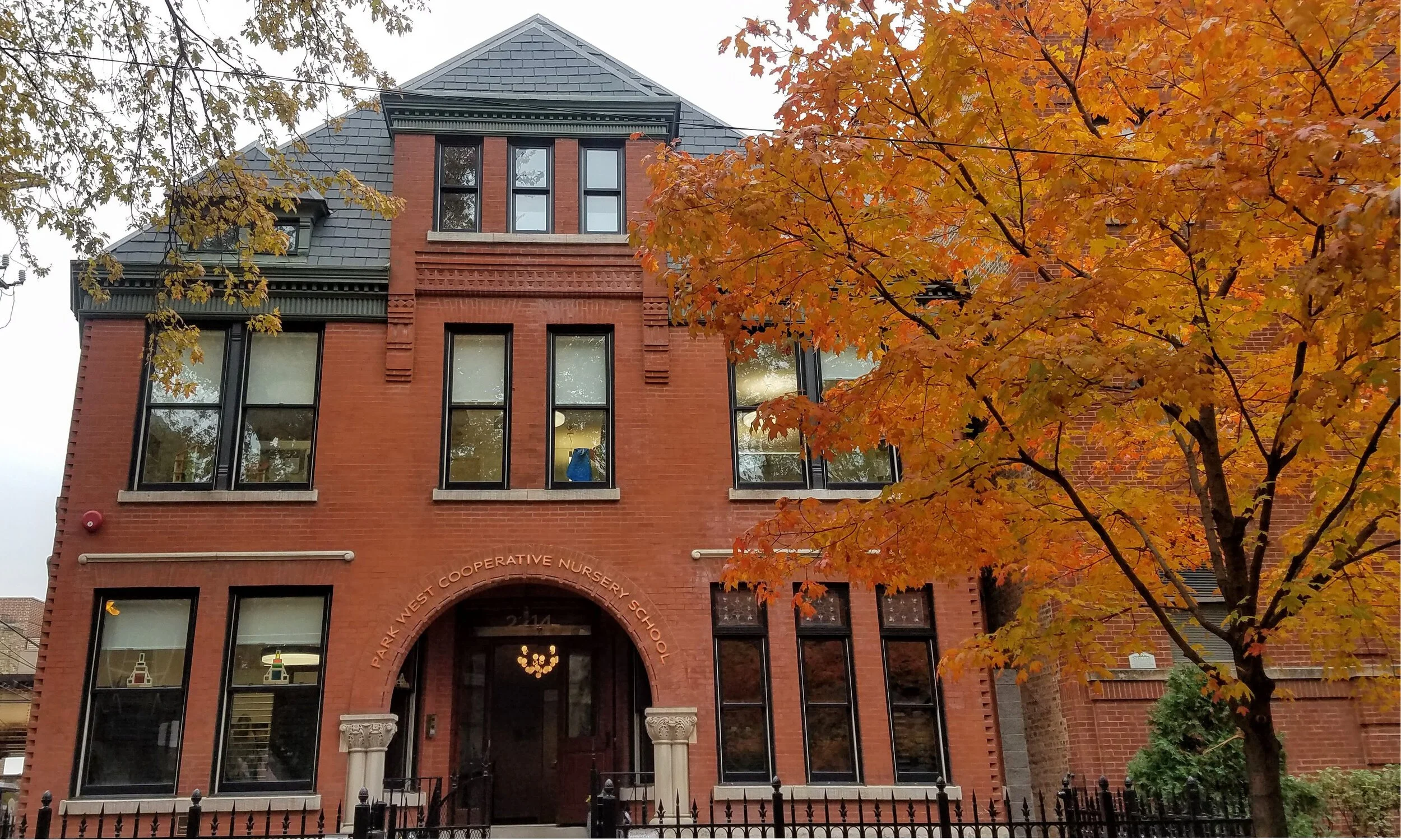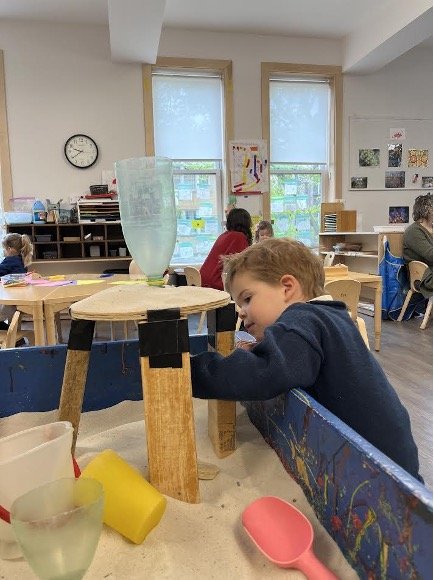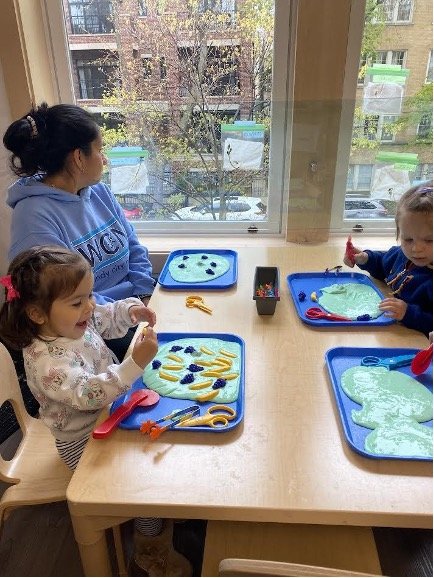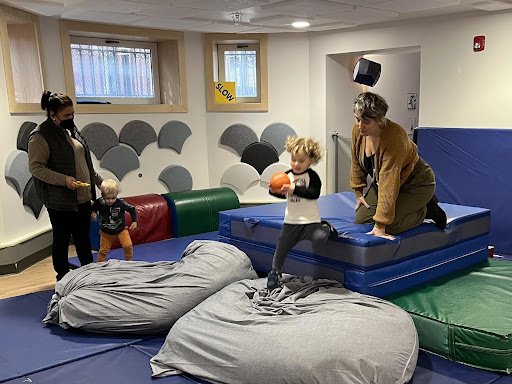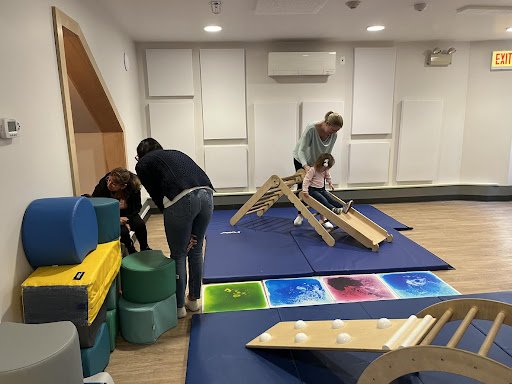Dear Parent-Toddler Families,
It really is hard to believe that we only have three more classes left before the end of the school year… but the classroom calendar says that it’s May, so it must be the truth!
For us “Tots” teachers, this really feels like a special time of year, that place where we’ve hit the “sweet spot” of our group. Kids are familiar and comfortable with our routines, with the ever-changing makeup of our classroom and the gym, with us as guiding adults, and with one another. They are able to anticipate what’s coming next and draw on past experiences to inform whatever it currently is that they’re trying to tackle - something new and unexpected at the sand table; a chance encounter with a peer in the playhouse; or any of the numerous “big moments” that come up during our short times together on Monday mornings. Have you seen it? These kids are working so hard!
Over the past couple of weeks we’ve been sharing a new song at our group times on the rug and before we prepare to say goodbye in the gym. It’s similar to our “Little Fish” song, but instead of a fish, it’s a kid - *these* kids…
“When I was a little kid, a little kid, a little kid
When I was a little kid, 1 year old
Ha-Ha this-a-way
Ha-Ha that-a-way
Ha-Ha this-a-way
Then, oh then…
When I was a bigger kid, a bigger kid, a bigger kid
When I was a bigger kid, 2 years old
Ha-Ha this-a-way
Ha-Ha that-a-way
Ha-Ha this-a-way
Then, oh then…
When I was the biggest kid, the biggest kid, the biggest kid
When I was the biggest kid, 3 years old…”
Of course, your children are going to get bigger and bigger, and their school experiences are just getting started. In the context of our Parent-Toddler class though, they really are the biggest kids, whether they’ve already crossed the 3 year old threshold or not. This is the way that we’ll remember them, and our experience together… a group who started out so little and did so much growing and learning, as individuals and as a cohort. What a delight it has been for us to observe and help facilitate.
Over the next few weeks we will gently and subtly address the impending end of our group, doing our best to help kids prepare for the transition. Transitions like this can feel hard to discuss because of many factors, not the least of which are our own adult emotions we may be feeling! We want to give kids the right amount of information without bombarding them with too many details that they are not going to be able to process, and most importantly, we want to be honest. Yes, it will feel sad. Yes, there will be a lot of things we’re going to miss about this experience. We also have so much that we’re looking forward to, and we know the same is true for all of you and your families - summer camps and vacations, family time together, and also, “what’s next?” We look forward to seeing some of our familiar Tots faces next school year back at Park West, and we are so excited for the families that have made plans elsewhere. We’re so glad you’ve been with us and it is a deep honor to be able to play our role in your child’s development as a learner. We’re not done yet! The next three weeks will be packed with explorations at the sand and water tables, sharing songs and stories on the rug, passing the bowls and pitchers to each other during snack time, and some fast and furious gym play.
Let’s enjoy these next few weeks together, shall we? We’re excited to hear about what’s next for each of you, but we also want to try our best to be in the moment and savor this last little bit of time. As teachers we do this every year and it’s always a tender time preparing to let go, and so we have to draw on our past experience too!
All the best,
Byl and Kristin

